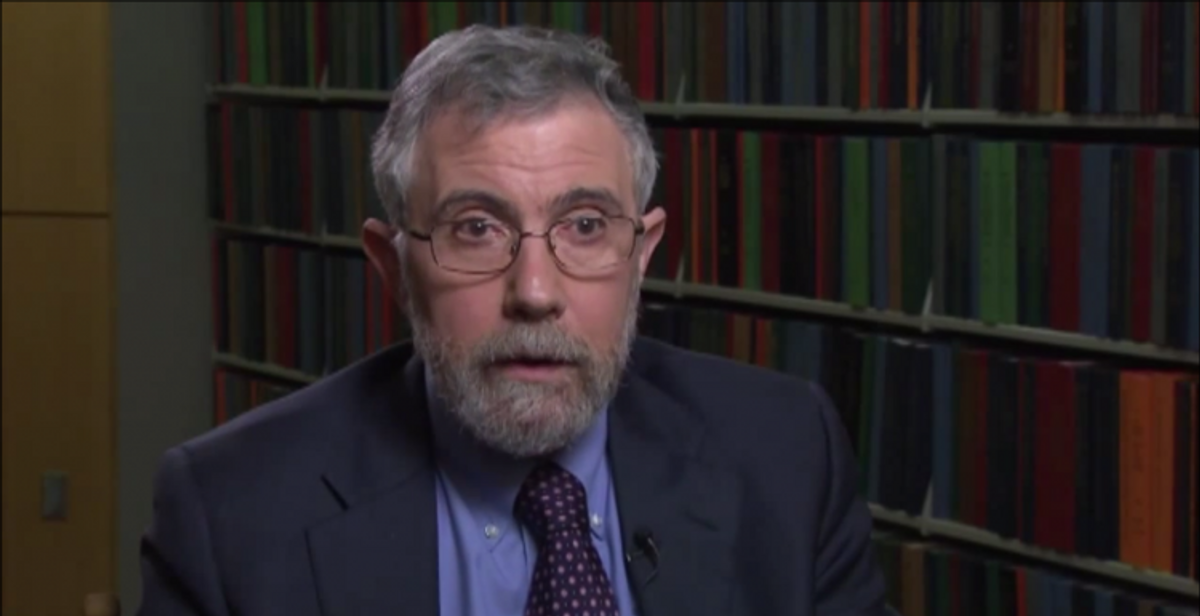In his latest column for the New York Times, award-winning economist and popular liberal pundit Paul Krugman argues that no amount of evidence will ever make inflation-obsessed conservative economists come to their senses, mainly because their opposition to aggressive monetary policy is based on an ideological opposition to government rather than facts.
"Needless to say, it’s not the first time a politically appealing economic doctrine has been proved wrong by events," Krugman writes in reference to the low interest rates and levels of inflation that have defined the recovery-era economy, despite conservative warnings that government action to save the economy would cause financial ruin.
"So those who got it wrong went back to the drawing board, right?" Krugman jokes. "Hahahahaha."
The reason he laughs, Krugman writes, is because "money is indeed a kind of theological issue" for conservatives, even if the uninitiated would think it more a "technical" matter. "Many on the right are hostile to any kind of government activism, seeing it as the thin edge of the wedge," Krugman writes, "if you concede that the Fed can sometimes help the economy by creating 'fiat money,' the next thing you know liberals will confiscate your wealth and give it to the 47 percent."
This irrational and stubbornly political view of policy, Krugman claims, is so powerful within the GOP that the inflation doomsayers are "gaining strength even as [their] predictions keep failing." Krugman continues:
Can anything reverse this descent into dogma? A few conservative intellectuals have been trying to persuade their movement to embrace monetary activism, but they’re ever more marginalized. And that’s just what [this] article would lead us to expect. When faith — including faith-based economics — meets evidence, evidence doesn’t stand a chance.



Shares